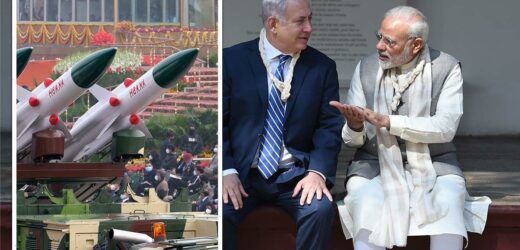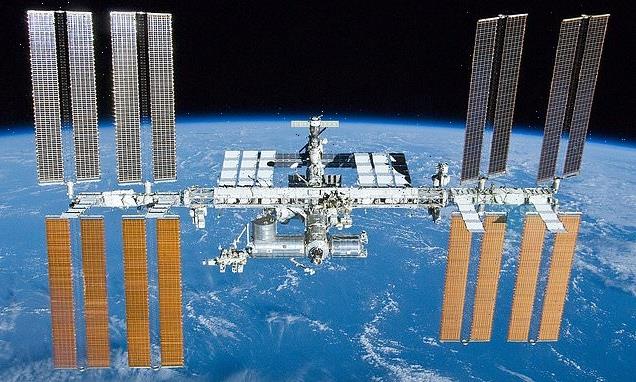Boris Johnson is grilled on India and Modi’s stance on Russia
We use your sign-up to provide content in ways you’ve consented to and to improve our understanding of you. This may include adverts from us and 3rd parties based on our understanding. You can unsubscribe at any time. More info
New Delhi is beginning talks with the US and Europe, as well as Israel to strike new arms deals, in an effort to reduce its reliance on Russian military equipment. While India is not a major importer of Russian oil and gas, it is heavily dependent on Moscow for arms, handing it more than $25billion (£20billion) over the last 10 years, according to the Stockholm International Peace Research Institute.
However, Russia’s ability to influence European decisions due to its energy dependence has sparked concerns about relying too heavily on a single supplier.
Furthermore, Putin’s invasion of Ukraine has deepened relations between Russia and China, a neighbouring country that India is continually in a border conflict with.
Earlier this month, Defence Minister Benjamin Gantz met Indian Prime Minister Narendra Modi and held talks to “deepen defence cooperation” between the two countries.
Israel is another major arms exporter to India, supplying $2.9billion (£2.4billion) worth of missiles, radars and UAVs from Israel in the last decade.


During the meeting, Mr Modi “encouraged Israeli defence companies to benefit from opportunities of co-development and co-production in India“.
Last month, the Indian Prime Minister met French President Emmanuel Macron where they discussed boosting French involvement in India’s campaign for greater self-reliance, including on “advanced defence technology.”
During Prime Minister Boris Johnson’s visit to India in April, the two countries issued a joint statement outlining plans for Britain to help develop India’s new domestic fighter jets.
At a Quad summit last month, Mr Modi also spoke with US President Joe Biden about a low-cost weapons package from the US to India.
Harsh Pant, vice president of studies and foreign policy at the Observer Research Foundation in New Delhi said: “The most important lesson that India is learning from the Ukraine crisis is that overdependence on any one country is bad.”

He told Nikkei Asia: “The defence cooperation with Israel and other countries will help India in reducing its dependence on Russia.”
India considers China as a major national security threat, as Beijing boasts of a bigger defence budget and a larger military.
The Quad, which is a group consisting of the US, India and Japan and Australia, is designed to counter China’s influence in the Indo-Pacific region.
A Quad diplomatic source told Nikkei Asia that other members of the group will also consider joint arms production with India and other measures in response to its push to bolster its defence industry.
DON’T MISS:
Energy crisis lifeline as expert claims heat pumps a ‘no brainer’ [INSIGHT]
Russia threatens ‘major’ outbreak of fatal disease [SPOTLIGHT]
Energy crisis: US firm strikes major UK deal to slash waste and power [REVEAL]


As India looks to boost its self-reliance, last month, New Delhi put negotiations with Russia to acquire 10 Kamov Ka-31 airborne early warning helicopters on hold.
The deal would have seen the Kremlin rake in $520million (£413million).
Dr Sameer Patil, a senior fellow at ORF Mumbai, told Express.co.uk that this decision could be an indicator of “Indian thinking”, suggesting that New Delhi could be on the verge of ripping up more contracts.
Source: Read Full Article


